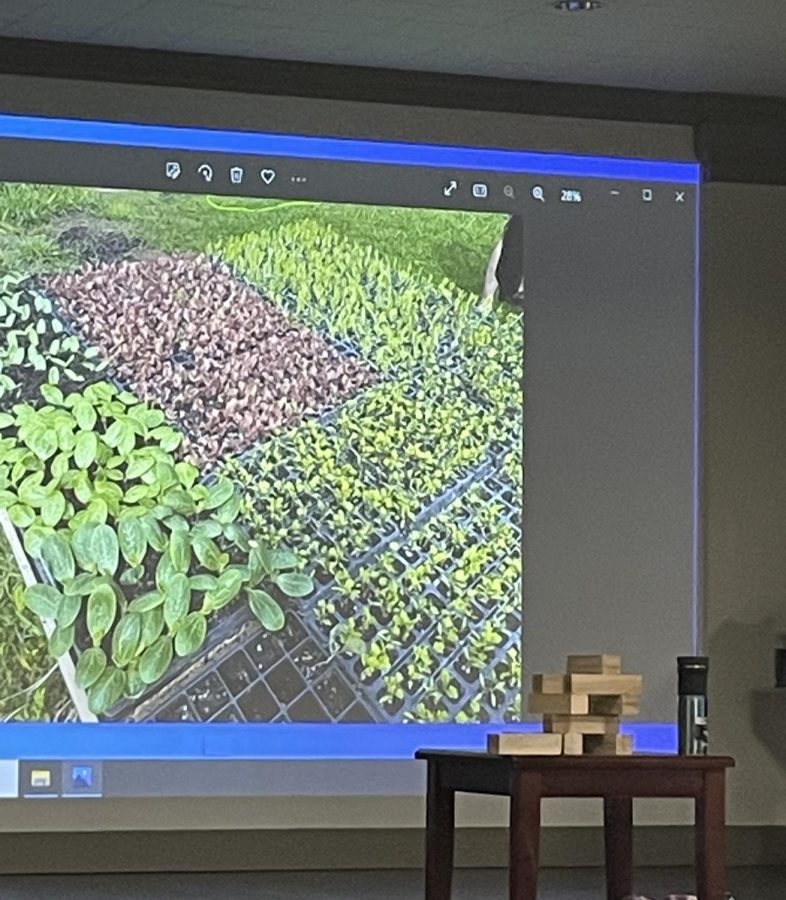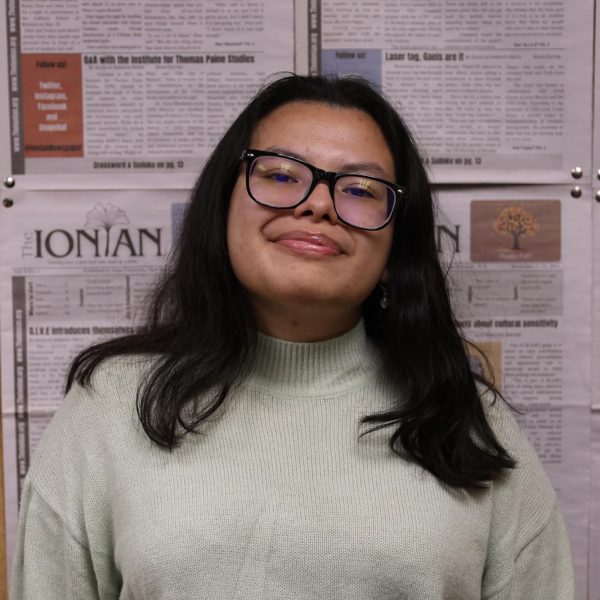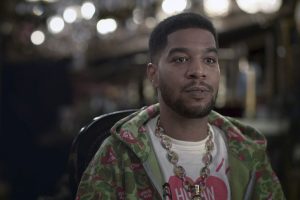Co-founder of Freedom Farm gives talk on sustainable consumption
Photocredits Jocelyn Arroyo-Ariza
Freedom Farm is located in upstate New York, teaching people how to reconnect to the planet.
November 17, 2022
Edgar Hayes, the executive director and co-founder of Freedom Farm, gave a talk as a part of the Week of the Peacemaker on Nov. 15.
Freedom Farm is a Christian-based youth education organization located in upstate New York. Youth, college and church groups are welcome to attend for retreats and reflection. In particular, the organization invites young people from the city to learn about growing vegetables, sustainability and faith. Iona is planning to bring a group of students to Freedom Farm after the spring semester.
Hayes began his talk by reminding students that everything is connected. First, he asked for participants to take out a Jenga piece until eventually the tower came crashing down. Later, a group of volunteers handed out pieces of yarn to the audience, starting off with one person and passing the string to the next. The idea of the activity is that the yarn gets all crazy and crisscrossed. The strings were symbolic for the earth, water, air and people. Dr. Robinson, who was the moderator for the event, then read a reading from Genesis as Hayes played the drums.
After the reading, Hayes commented that before industrialization everything was good and clean. You could actually drink out of the Hudson River. He also pointed out that many of us do not check or know what ingredients are in our produce or where it comes from. Putting our health at risk, companies favor profit instead of the consumer. Cows and chicken no longer eat grass with no help from the earth being polluted. Antibiotics, grain and other sources are used to fatten up livestock for monetary gains. In fact, mad cow disease originated from cows being fed other cows. Additionally, Hayes asked participants to tug on the string. Many responded that they instantly felt their grip of the string loosening, which represents the impact our actions have on each other. All are part of the structure of the planet. We all have the power to change things that are exploited and things that do not lift humanity. However, if our natural resources get polluted and/or drained we would all die.
Representing the disconnect, students were asked to drop their pieces of string and to look around. Often, we forget that we are interconnected by the chaos of the world. Reconnecting to the earth is difficult but not impossible when one imagines solutions for a better future.
Hayes asked the audience what seed, tree or flower they would be. Students gave a variety of answers ranging from sunflower, passion fruit, eggplant and mustard seed. He talked about in the past corporations did not hold seed patents to prevent farmers from growing crops, once again reaffirming that companies’ main interest is monetary. Seeds were eventually manipulated to not sprout, making farmers dependent on companies to buy seeds. As a demonstration of the power of produce, Hayes displayed a cob of corn, which has numerous seeds that could feed a multitude of people, as well as different types of seeds such as pumpkin and apricot from the farm being passed around the auditorium.
Freedom Farm gives its produce to those in need. Particularly, the organization gives away food to those who do not have access or could not afford fresh produce. Food is constantly thrown out with production being able to feed everyone on the planet. Hayes points out if Iona planted tomatoes, zucchini and squash in its garden, the university would have to give food anyway.
If Gaels want to get more involved with Fresh Farms – the organization is tailored for young people – there are volunteer opportunities and internships available on their website https://www.freedomfarmcommunity.org/Home.html.









